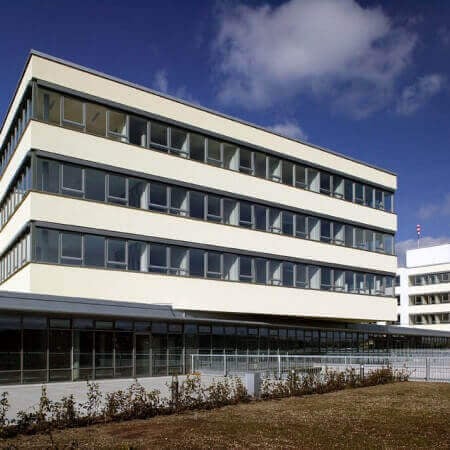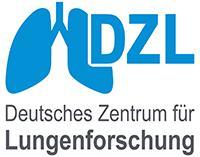The immune system could not function without the thymus gland. Blood cell differentiation occurs there, just like in the bone marrow. Therefore, it would be fair to say that the T-immunity is built around the thymus gland. The thymus gland takes part in T-lymphocytes maturation. They are "programmed" to recognize atypical cells and protect the body against bacteria, being one of the body's defense mechanisms. Therefore, it's essential to know how to suspect thymus cancer and how to go about its treatment.
Content
- About the thymus gland
- How to suspect thymus cancer
- How is thymus cancer diagnosed?
- Surgery for thymus cancer treatment
- Chemotherapy and radiation therapy
- Rehabilitation and prognosis for thymus cancer patients
- The cost of treatment in Europe
- How to start thymus cancer treatment in Europe?
About the thymus gland
The primary function of the gland is the differentiation of lymphocytes. White blood cells help maintain immunity and prevent infections from spreading. They capture pathogenic cells and remove them from the body. They accumulate on the surface of wounds, in the pimples, etc. In this way, the body fights infections.
Facts about the thymus gland:
- The thymus gland produces substances that are necessary for maintaining a strong immune response
- The thymus gland increases its size until the age of 18, after which the process of gradual reduction of the gland begins
- The thymus gland participates in recognizing foreign organisms (bacteria, etc.) and their elimination
There are several types of cancer of the thymus gland, which are determined through histological examination. Thymic carcinoma is a type of cancer that is characterized by rapid growth. The thymus cancer process often affects the lymphatic system, spinal cord, and bone marrow.
How to suspect thymus cancer
The clinical picture of thymus cancer is very diverse. According to statistical information, about 50% of tumor cases are asymptomatic and are detected during prophylactic X-ray examinations or are manifested by symptoms of anterior mediastinal organs compression.
At significant compression, a feeling of tightness behind the sternum, discomfort, pain, shortness of breath, swelling of cervical veins, puffiness, and blueness of the face appear. Respiratory disorders are particularly severe in children due to the relatively narrow trachea.
In the course of cancer, it is possible to distinguish between an asymptomatic period and a period of severe clinical manifestations. Asymptomatic period duration depends on the localization and size of the tumor, its nature (malignant or benign), growth rate, and influence on mediastinal organs. The neoplasm is often asymptomatic for a long time, and it is accidentally detected during a prophylactic chest X-ray examination.
Clinical signs of thymus cancer generally include signs of compression or tumor spreading into neighboring organs and tissues, general manifestations of the disease, and specific symptoms typical for different neoplasms.
The most frequent symptoms of thymus cancer are pain caused by compression and invasion of a tumor into nerve trunks or nerve plexuses, which is possible both in benign and malignant neoplasms. As a rule, the pain is not intensive, localized on the side of the lesion, and often irradiates to the shoulder, neck, and interscapular region. Left-sided pain is often similar to that of angina pectoris.
Another manifestation of the compression syndrome is venous outflow disturbances: patients experience noise and heaviness in the head, which intensify when lying down; chest pains, shortness of breath, swelling of the face and upper trunk, swelling of veins in the neck and chest region. Compression of the trachea and large bronchi causes coughing and dyspnea. Compression of the esophagus can cause dysphagia or a disruption of food passage.
At the advanced cancer stages, fatigue, increased body temperature, sweating, and weight loss are characteristic of malignant tumors. Some patients have manifestations associated with intoxication with products excreted by growing tumors. These include arthralgic syndrome, swelling of the joints, swelling of soft tissues of the extremities, an increase in heart rate, or arrhythmias.
Thus, clinical signs of thymus cancer are very diverse, but they are manifested at the advanced stages of the disease. The information from radiological and instrumental methods is essential for diagnosis making, especially for recognizing the early stages of the disease.
How is thymus cancer diagnosed?
Since the thymus gland cancer does not manifest itself early, most often it is discovered either accidentally during a routine X-ray or in connection with other complaints. In the advanced stages, when the tumor becomes large enough to cause specific complaints, the examination may be more targeted. For example, with a CT scan, a tumor can only be seen if it has already reached a size of 3 cm. Radiological methods are mainly used to detect it: X-rays, CT scans, and examinations of the esophagus with a contrast agent.
Such examinations detect a suspicious mass. It can then be clarified as to its size, where exactly it is located, and what shape it has. This can be most accurately described after an X-ray examination. The doctor will determine exactly whether the thymus gland contains cancer, the contours of the neoplasm; how it is located compared to other organs in the chest; what its structure is, and whether it is mobile. On the other hand, the esophagus is examined with a contrast agent to see clearly how much it is displaced relative to its normal position.
If the person has enlarged lymph nodes, the doctor carries out a biopsy. This is how you can find out if there are metastases present. As with any disease, blood tests (general and biochemical) give essential information regarding the peculiarities of thymus cancer. If the tumor is malignant, then leukocytosis, anemia, and lymphopenia are commonly detected. The lab will also test blood for the presence of cancer markers.
Surgery for thymus cancer treatment
The primary treatment method for patients with tumors of the thymus gland is surgical removal of the thymus gland with the tumor. The earlier surgical intervention is performed, the better, because often the tumor has invasive growth, affecting vital organs, which makes the tumor unresectable. During surgery, it is necessary to remove not only the tumor, but also the entire thymus gland and, if possible, the fatty tissue of the anterior mediastinum. Otherwise, there can be tumor recurrence and relapse of myasthenia gravis.
Surgery is traditionally performed via transsternal access, which allows a good revision and removal of the tumor, thymus gland, and adjacent anterior mediastinal fatty tissue. If a histological examination shows that the tumor is malignant, the patient (after the removal of surgical sutures from the wound) should be transferred to specialized oncological hospitals for chemotherapy and radiation therapy. A severe complication, a myasthenic crisis, may also arise. This requires many days of artificial lung ventilation, tracheotomy, intensive therapy, modern detoxification methods, etc.
Thymus cancer is usually treated with a combined therapy method. And the earlier the disease is detected, and therapy begins, the better the survival rate and the prognosis. Thymus cancer is dangerous because metastases spread quickly. A slight delay in treatment start can make surgical intervention pointless. And again, if surgery is performed, the tumor itself and the entire organ are removed. And to make the chance of recurrence lower, the fatty tissue that is located in the anterior mediastinum is also removed, if possible. During treatment, partial resection of the pericardium or trachea is also possible. But this is in cases when the tumor has already affected them. In other cases, only the lymph nodes that are located in this area are removed.
Removal of the thymus gland is called a thymectomy. Different treatment approaches, often determined by the size and location of the tumor, are used to remove thymic cancer. Treatment options for surgical removal include a midline sternotomy, video-assisted thoracic surgery, and robotic-assisted thoracic surgery.
A midline sternotomy opens the sternum along the midline to gain access to the mediastinum for partial or complete removal of the tumor.
Video-assisted thoracic surgery uses a small camera and specially designed endoscopic instruments inserted into small incisions between the ribs to work inside the chest and remove tissues, avoiding thoracotomy. Robotic thoracic surgery uses a robotic device to move surgical instruments inserted into small incisions between the ribs, much like VATS. But the robot allows surgeons to work with greater precision. Robotic surgeries are therefore more efficient and safer.
Several chemotherapy courses with platinum-based medications are conducted after surgery to increase the survival rate. The most common treatment regimen involves six courses of chemotherapy every three weeks. Radiation therapy may also be used after surgery, but never as a stand-alone therapy.
Chemotherapy and radiation therapy
Potential candidates for chemotherapy include approximately one-third of patients with metastatic thymus cancer and all patients with the fourth stage of the disease. The overall average response to chemotherapy is 90%. A study conducted in Belgium showed that among 16 patients with recurrent or metastatic thymus cancer, there were five complete remissions and four partial remissions after chemotherapy. The median survival rate after treatment with chemotherapy was about five years.
Adjuvant radiation therapy for completely or incompletely resected stage 3 or 4 thymus cancer is considered the standard of medical care. However, postoperative radiation therapy for stage 2 thymus cancer is not currently used in European hospitals. It has been proven that the possible risks of this approach exceed the possible benefits.
If surgical treatment is not possible, photodynamic therapy is increasingly being used. This treatment method is used when cancer has spread widely and is based on exposing the human body to a laser and a medication. This method, although new, has already proven to be quite good because it has almost no side effects and ineligible patients copes with cancer even better than surgery.
Rehabilitation and prognosis for thymus cancer patients
Patients who have had their thymus tumors removed are at risk of myasthenic crisis, a severe condition in which neuromuscular conduction is impaired, resulting in severe muscle weakness accompanied by paralysis, impaired breathing, and swallowing. In severe cases, a lethal outcome is possible. Artificial pulmonary ventilation and cholinesterase inhibitors in long courses are recommended for people with cancer complications.
The prognosis depends on the histologic type of thymus cancer. In benign tumors, treatment outcomes are favorable. For people with the first stage of thymus cancer, the 20-year survival rate is about 90%. In patients with malignant tumors, the prognosis depends on the stage of the cancer. In the second stage, about 90% of patients survive for five years, with stage 3 – up to 70% and with inoperable tumors – only 10%.
The cost of treatment in Europe
The cost of treatment in Europe depends on the stage of thymus cancer and the tumor's location. It is clear that cancer with numerous metastases requires more intense treatment measures than thymus cancer of the same type, but is detected early. Similarly, suppose the treatment of pathology requires high-tech surgery. In that case, the total cost of treatment in Europe will be much higher than in cases where the localization of the tumor allows for a more conventional operation. On the contrary, if specific procedures are no longer necessary, the final cost of treatment in European hospitals will be somewhat lower than anticipated.
Finally, the length of stay in European hospitals influences the cost of treatment. This amount is made up of rates for inpatient hospital accommodation by the day, food costs, and much more.
The average prices for diagnostics for thymus cancer in European hospitals start at 812 EUR. The cost of treatment with tumor excision starts at 10,120 EUR. The price of medical rehabilitation generally amounts to 566 EUR per day.
You can find information about the prices for treatment in different countries on the Booking Health website. Feel free to request a calculation of the cost of treatment in Europe for your clinical case on our website.
How to start thymus cancer treatment in Europe?
Booking Health can organize thymus cancer treatment in European hospitals in the shortest possible time. Booking Health will choose a clinic among the leading European hospitals, considering all your life circumstances (the difficulty of obtaining a visa to a particular country, etc.).
Due to a well-planned schedule of diagnostics and treatment by Booking Health, you can avoid queues and consequently shorten your stay abroad and save your time and money.
To find out more details about your treatment in Europe, send information through the request form on the Booking Health website. A medical advisor will contact you and answer your questions and help you choose the most efficient variant of treatment. Consultation with Booking Health is free.
Authors:
The article was edited by medical experts, board certified doctors Dr. Nadezhda Ivanisova and Dr. Sergey Pashchenko. For the treatment of the conditions referred to in the article, you must consult a doctor; the information in the article is not intended for self-medication!
Sources:
National Cancer Institute
Cancer Support Community
European Society for Medical Oncology




















